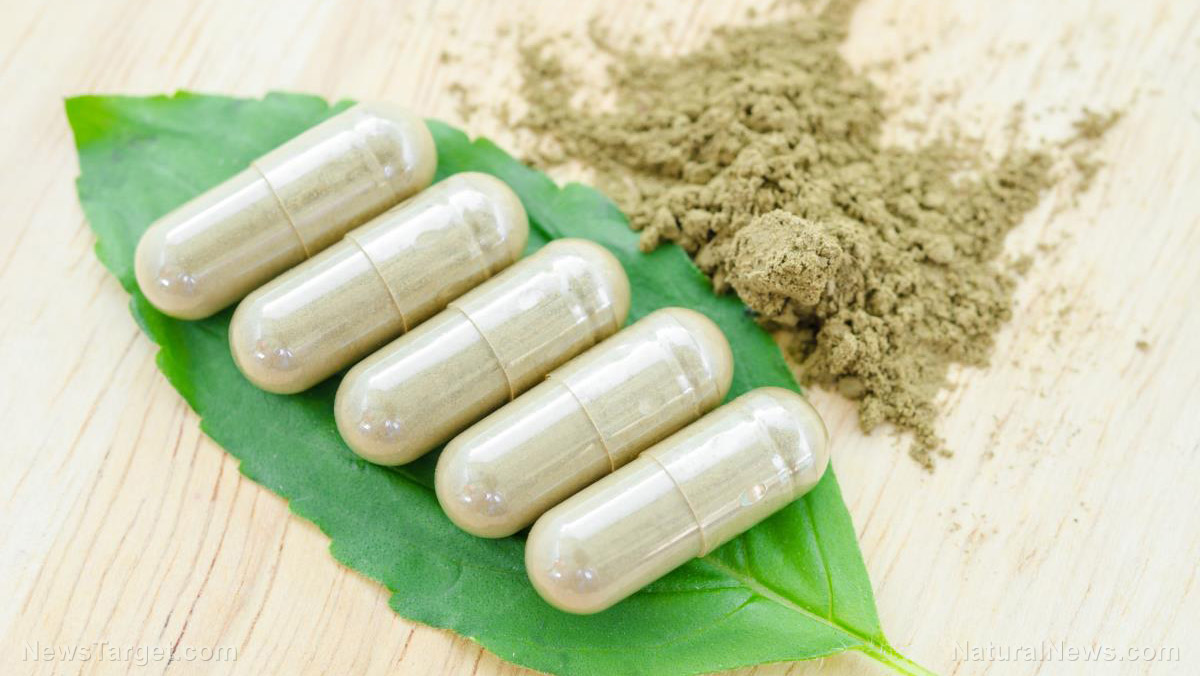DHA supports liver health in people who eat a poor diet
08/27/2018 / By Edsel Cook

If your bad diet or excess weight is causing problems for your liver, consider increasing your intake of docosahexaenoic acid (DHA). An article on Natural Health 365 states that the omega-3 fatty acid can help mitigate the worst effects of liver damage, up to and including full-fledged liver disease.
Researchers are still working to develop medications that can safely and effectively amend liver problems. In the meantime, the best way to deal with liver problems is to eat the right food, get plenty of physical exercise, and – in the case of people afflicted with obesity – shed those pounds.
There are, of course, some people who have difficulty pulling off these rather significant changes in their lifestyle. DHA could give them a hand in improving the state of their liver, report researchers from Oregon State University (OSU).
The results of their animal study were released on the journal PLOS ONE. (Related: Treat your fatty liver disease naturally with a traditional Chinese herbal powder.)
DHA can stop the progression of nonalcoholic steatohepatitis
All of the omega-3 fatty acids are important, but DHA is perhaps the most crucial when it comes to protecting the liver. Supplements of this fatty acid appear to inhibit the development of nonalcoholic steatohepatitis (NASH), where fat builds up in the liver and causes health problems such as cellular damage and excessive inflammation.
Given that it involves the development of fibrosis, out-of-control immune reaction, and oxidative stress that injures liver muscles, NASH is bad enough on its own. However, it is also the precursor to even more serious liver conditions such as cirrhosis and cancer. These diseases can lead to death.
However, increasing DHA levels can prevent the onset and progression of NASH and, in extension, stop more serious hepatic diseases from developing. When tested on lab rats that subsisted on standard American diet (SAD), the omega-3 fatty acid was able to reduce the ill effects of consuming cholesterol, fat, and sugar.
This is important given that NASH is one of the top reasons for liver transplant operations. It also cannot be treated by existing medicines, leaving only lifestyle changes as the sole remedy for the time being.
Furthermore, experts estimate that close to 80 million adults and 13 million children are suffering from obesity. Around 30 percent of those adults also have some form of chronic fatty liver disease, such as NASH.
DHA supplements are not a cure for this disease. However, they can help obese patients with liver problems who are trying to lose weight and follow healthier diets. Taking supplements of this omega-3 fatty acid can also prevent nonalcoholic steatohepatitis from getting worse.
With DHA, livers can heal the damage from various hepatic diseases
Patients with NASH have been shown to suffer from low levels of omega-3 fatty acids. This deficiency includes DHA. Interestingly, in addition to restoring proper levels of the important compound, DHA supplementation is often able to stop the progression of NASH.
Omega-3 fatty acids handle several crucial biological processes. They are responsible for oxidizing, synthesizing, and breaking down the fats transported by the blood throughout the body.
Of the large family of omega-3s, DHA is perhaps the most important. Among the myriad functions it fulfills, this fatty acid is able to repair the damage that liver disease inflicts upon hepatic cells and tissues.
The best natural sources of DHA are salmon, sardines, and other oil-rich fish. Much smaller amounts of the nutrient can also be found in algae, eggs, liver, and poultry. For the best effect, get freshly-caught wild fish and organic-grown produce.
Read up on more natural nutrients that can help protect you from liver disease at Nutrients.news.
Sources include:
Tagged Under: cirrhosis, DHA, DHA benefits, DHA supplements, fatty liver disease, Liver cancer, liver cirrhosis, liver disease, liver health, non-alcoholic fatty liver disease, nonalcoholic steatohepatitis, omega 3 fatty acid, prevention, supplements




















